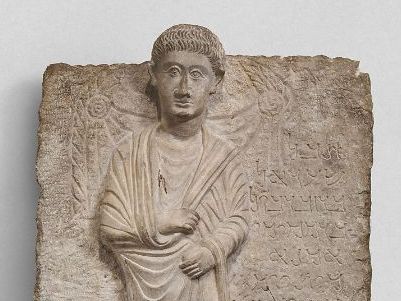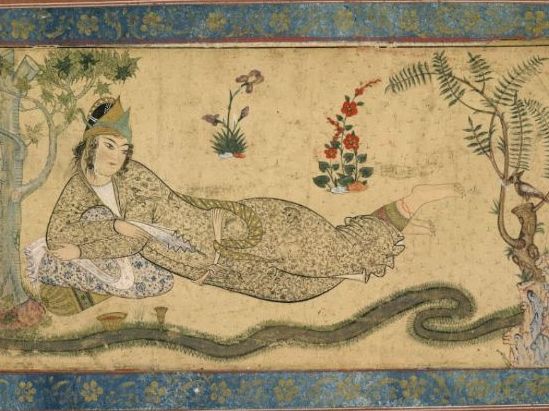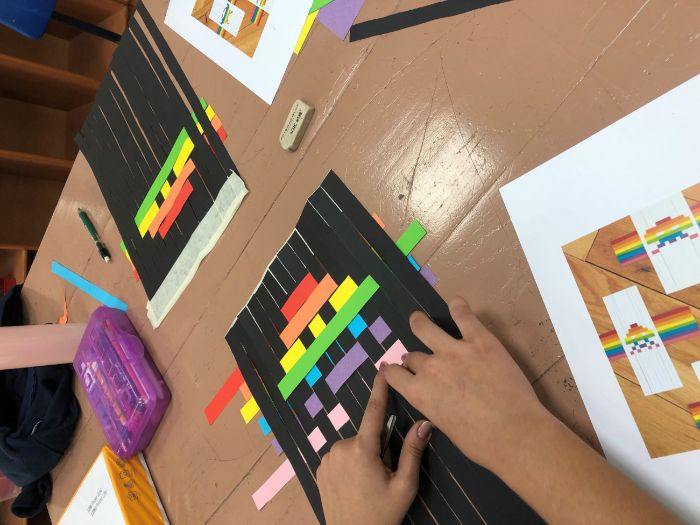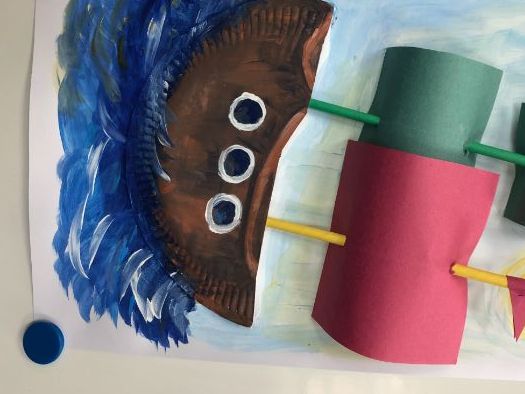21Uploads
2k+Views
334Downloads
All resources

Line Relief Pottery Lesson
For this pottery project, you will create your own raised design.
A raised design in an artwork is called a ‘Relief’.
You will be using a Styrofoam plate for this project.
This ceramic lesson can be taught to all of Secondary.
This could be a 3 one-hour lesson:
Create your design and Styrofoam plate - the theme could be a pattern or link to another art task.
Build your pot and use the Styrofoam plate
Paint your final design with Watercolours or Acrylics.
Tips:
Try and limit the use of water in stage 2.
Press hard on the Styroplate to capture the design; it doesn’t matter if the Styrofoam plate breaks.
If you use air-dry clay, Acrylics might work better than Watercolours, as the water could ruin the pot.
Have fun!

Egyptian Textiles Fashion
Exploring Egyptian Textiles topic.
Mini lesson (30 mins) with a:
Information & Pictures
Quiz
Design a Tunic exercise
Including visual handouts.

Dynamic Artwork: Kinetic Sculpture (Calder)
We are exploring Dynamic Art through the eyes of Alexander Calder.
Students investigated and created a PowerPoint about the Artist before this lesson.
Attached is a lesson plan exploring Calder process of making Mobiles, Kinetic Sculptures. The task is to create a three-level mobile based on flight.
For this task you will need string, sticks and any other type of collage materials.
This is a four-period lesson for Year 9/Grade 8.

Dynamic Art: Abstract Movement (Balla)
We are exploring Dynamic Art through the eyes of Giacomo Balla.
Students investigated and created a PowerPoint about the Artist before this lesson.
Attached is a lesson plan exploring the Balla process and how to create a Balla-inspired artwork.
For this lesson you will need pencils, black pens & pastels.
This is a two-period lesson for Year 9/Grade 8.

Pastel, Cyberpunk, Futurism, Dystopian, Cityscape
Description:
Learn about a Futurist Artist
Study the Artist’s style
Watch a video clip (Bladerunner) on how this Artist still influences us today
Create your own Futurism artwork based on a Cyberpunk, Futurism, Dystopian, Cityscape
Task involves pastels and black paper.
Included in the download are a PPT and a Video

Technical Drawing - Pictorial
Description:
Define pictorial drawing.
Identify the different types of pictorial drawings.
Define an oblique view.
Draw an oblique view of a 3D solid.
Complete oblique drawings.
Define an isometric view.
Draw an isometric view of a 3D solid.
Complete isometric drawings.
Define a perspective view.
Draw a perspective view of a 3D solid.
You will need pencils, erasers, rulers and graph paper.
The whole lesson is in the PowerPoint, including different drawing tasks.

Propaganda Art - Forests are Golden
Forests are Gold is from a Vietnam
propaganda poster painted in 1977 by
artist Lê Thiệp, who studied at the Trường
Đại Học Mỹ Thuật [College of Fine Arts] in
Hanoi.
This is one lesson look at Propaganda Art not related to War but to the Environment.
Includes an activity at the end.
This is a lower secondary visual art task.

Art History: The Ancient City of Palmyra
Mini 35 mins Art History lesson.
This is a pdf of a student-led lesson including content, quiz and drawing task. I’ve also included imagery for the drawing task.

Art History: Queen of Sheba
Mini 35 mins lesson about Islamic Art History.
Attached is a PDF for a student-led lesson. Included is the story, quiz and a drawing task.

Fernand Leger: Drawing and Painting task
A slideshow lesson in Powerpoint introducting Fernand Leger to your class, includes an activity.
A lesson for two periods.
Years 7, 8, 9

Technical Drawing - Freehand
By the end of the lessons you will be able to:
Bisect lines and angles Improve two-dimensional sketching using various techniques.
Complete a three-dimensional sketch using crating.
Use isometric grid paper as a sketching aid.
Sketch cylindrical objects.
Understand how to use light in shading.
Add shadow and shading to enhance sketches.
Lesson Powerpoint is attached.

Architectural - Technical Drawing - Bubble diagram & Floor plan
Lesson material used for a class with Year 9 (KS3).
This term, we were looking at Architectural, technical drawing. In this lesson, we looked at Bubble diagrams and Floor plans.
The PowerPoint attached is for a 45 min lesson including activities, keywords and examples.

Maria Sibylla Merian: Scientific Illustration
Powerpoint lesson, learning objectives are:
Understand the history of scientific illustrations.
Introduce you to Maria Sibylla Merian.
Look at Maria’s scientific illustrations.
Be a Scientific Illustrator
Include the lifecycles of different animals and plants.

Architecture project: The Tiny-House
Architecture project: The Tiny-House
Design Brief
The tiny house movement (also known as the “small-house movement”) is an architectural and social movement that advocates living simply in small homes. One definition of a tiny house is a dwelling unit with a maximum of 37 square meters (400 sq ft) of floor area, excluding lofts. There are a variety of reasons for living in a tiny house. Many people who enter this lifestyle rethink what they value in life and decide to put more effort into strengthening their communities, healing the environment, spending time with their families, or saving money. Tiny Homes can also provide affordable transitional housing for those who have experienced a lack of shelter.
A family living in the _____ has decided to go to a leading architecture company in the _____ and ask you to design a 3D model of their dream tiny house. As the lead architect, it is up to you to win your client over and create a successful project.

Create a Space Invader with paper weaving
Fun arts and crafts task. A group activity creating a Space Invaders game. In the file attached are the instructions I shared with my class.
Instructions
Starter activity
Examples
Suitable for Y6 and Y7, maybe younger?

Make a 3D Pirate or a Old Sailing ship
You will get A3 instructions ready to hand out to your students.
A4 finished examples.
Powerpoint with learning objectives.
Suitable for Year 7, 6 & 5

Surreal Edible Architecture
Learning Aims: By the end of the lesson, learners will be able to Understand what Surreal Edible Architecture looks like.
In this download you are provided a lesson plan for maybe 2/3 lessons for Middle School based on food.
You will be provided a list and instructions on how the lesson should flow. Enjoy!

2 x Electrical Parts Game: Match the keyword to the description
Print out the PDF and cut up the rectangles. Keep one version uncut for reference.
In groups match the keywords to the description.
This is a good starter or end activity for class.

Pixel Art
Activity 1: Complete the grid drawing of the Minecraft character. The grid is made up of 10 mm squares.
Activity 2: Complete the Mario character. The grid is made up of 10 mm squares.
Activity 3: Complete the grid drawing of a symbol.
Print out and allow students access to pencil crayons.

Oswaldo Guayasamih Art Installation Lesson
Learning Question:
Who is Oswaldo Guayasamih and how do I create a response to his work?
Materials:
Cardboard
Paint
Black Markers




















